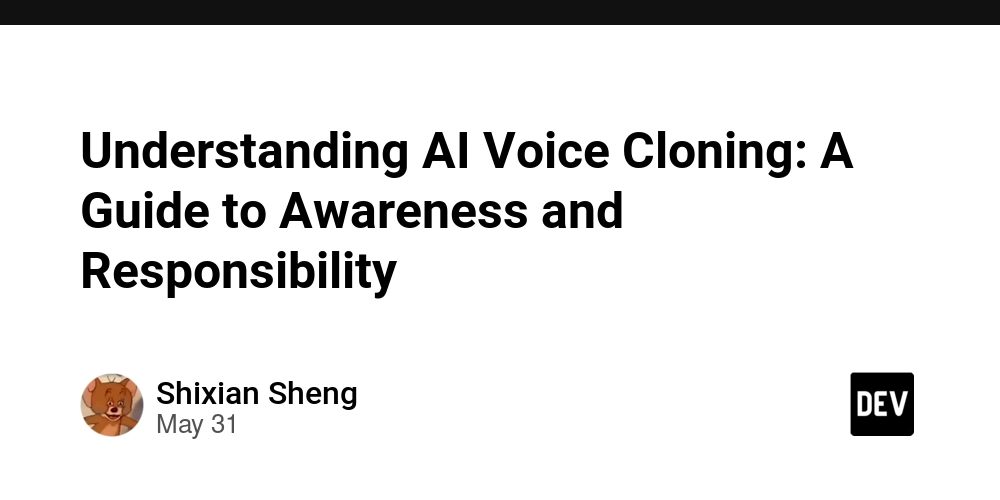Understanding AI Voice Cloning: A Guide to Awareness and Responsibility
In an era where technology advances at breakneck speed, artificial intelligence (AI) voice cloning has emerged as a groundbreaking innovation with profound implications for society. This article explores what AI voice cloning is, its applications, ethical concerns, and the importance of awareness and responsibility.
What Is AI Voice Cloning?
AI voice cloning is a technology that enables computers to replicate the human voice with remarkable accuracy. It involves using machine learning algorithms to analyze speech patterns, intonation, and other characteristics of a person's voice. The result is a lifelike synthetic voice that can mimic someone's speech in real-time.
Applications and Use Cases
AI voice cloning has found applications in various fields:
- Voice Recognition Systems: Enhancing virtual assistants and voice-controlled devices to better understand and respond to user commands.
- Audio Editing and Production: Creating synthetic voices for use in podcasts, commercials, or other audio content without the need for a live speaker.
- Entertainment Industry: Generating celebrity voices for use in movies, video games, or animated series, offering cost-effective solutions while preserving the authenticity of the voice.
- Marketing and Advertising: impersonating notable figures to endorse products, potentially leading to consumer confusion.
Ethical Considerations
While AI voice cloning offers exciting possibilities, it also raises significant ethical concerns:
- Privacy Issues: The ability to replicate a person's voice without their consent can lead to privacy breaches and emotional distress.
- Deception Risks: Misuse of this technology could result in deepfake videos or false endorsements, misleading the public and undermining trust in authentic sources.
- Implications for Mental Health: Overexposure to synthetic voices may affect mental health by creating confusion between real and artificial voices.
Security Measures: Protecting Your Voice
To mitigate these risks, individuals can take proactive steps:
- Educate Yourself: Understanding how AI voice cloning works can help you recognize potential threats.
- Use Privacy Tools: Employing tools like voice authentication apps to verify the authenticity of synthetic voices.
- Report Misuse: If you encounter AI-generated content that impersonates you, report it to relevant authorities.
The Future of AI Voice Cloning
Looking ahead, AI voice cloning holds promise for advancing human-computer interaction and creating personalized experiences. However, its responsible use depends on collective awareness and ethical practices.
Conclusion: A Call to Action
AI voice cloning is a fascinating technology with transformative potential. As it evolves, fostering awareness and responsibility becomes crucial. By understanding the risks and taking preventive measures, we can harness this technology to benefit society while safeguarding against misuse.
Stay informed, stay vigilant, and let's work together to ensure that AI voice cloning is used for the greater good.

